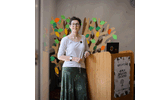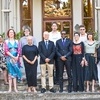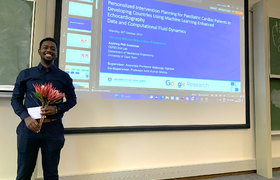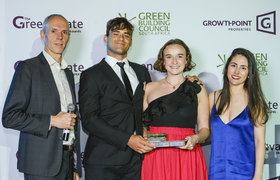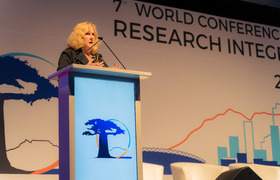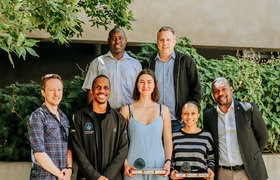Global Digital Heritage Afrika partners with UCT
12 March 2024 | Story Kamva Somdyala. Photos Nasief Manie. Read time 4 min.
In a move to preserve and democratise architectural heritage, the University of Cape Town’s (UCT) Faculty of Engineering & the Built Environment (EBE) has partnered with Global Digital Heritage Afrika (GDHA), a research grouping dedicated to the digital documentation of heritage.
GDHA is an affiliate of Global Digital Heritage, an international non-profit organisation based in the United States and Europe, which works collaboratively with the faculty on projects in Africa and around the world. GDHA is dedicated to the digital documentation of heritage landscapes, sites, monuments, and museum collections for research, conservation, and interpretation.
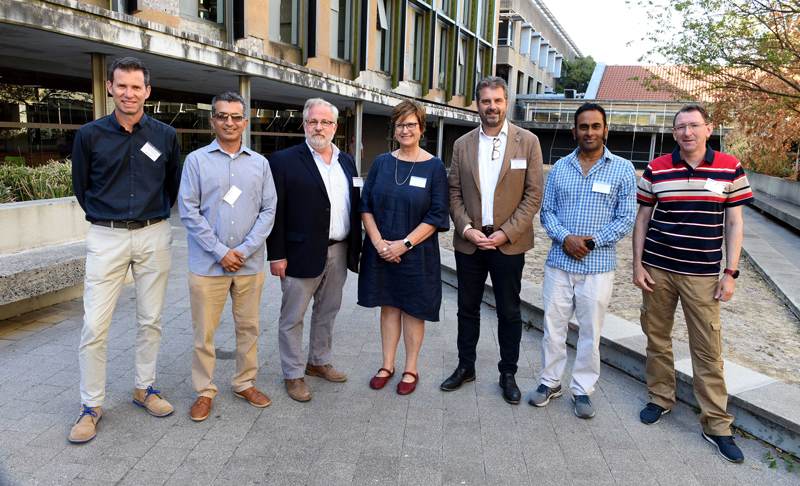
Speaking at the launch on 1 March, Vice-Chancellor interim Emeritus Professor Daya Reddy said the partnership was “a reference to communities that form part of our university ... also reference to our social responsibility in thinking about how we should be shaping our research programmes that are of relevance to Africa”. “It is also about looking back at our history and heritage and at the same time looking to the future. The GDHA, in my perspective, pulls all these together,” Emeritus Professor Reddy said.
In attendance at the launch was EBE faculty dean, Professor Alison Lewis; head of department (HoD) of Architecture, Planning and Geomatics, Professor Nancy Odendaal; HoD of civil engineering, Professor Mark Zuidgeest; and president of GDHA, Professor Herbert Maschner. Dr Siddique Motala lead the GDHA team, which consisted of Roshan Bhurtha, Bruce McDonald and Ralph Schroeder.
In her address, Professor Lewis said: “The concept of digital heritage captures the imagination – on the one hand there’s history which is unknown and undocumented. Think of the forts and castles on the coast of Ghana, mosques in Kenya and Mali, rock churches in Ethiopia and the list goes on. All these represent profound history that we want to preserve”.
“On the other hand, we have state-of-the-art modern technologies like laser scanning, drones and terrestrial photography which are used to generate the 3D models. There’s a window into the past combined with cutting-edge tools of the future”.
‘Hostile world’
“In the face of an increasingly hostile world where heritage resources are being damaged by everything from terrorism to environmental change and tourism, we provide 3D services to document and preserve … we emphasise lesser-known heritage, ie heritage in poorly funded regions,” Professor Maschner told the audience. “We make data freely available to anyone in the world who wants it. This we do to enhance the sense of identity and democratisation of knowledge around the world.”
He added: “Why UCT? The Zamani Project was fantastic and the kind of data collected was spectacular and I really liked the kind of places they went to. The experience of staff was also critical. There are a lot of people around the world scanning cultural heritage; there’s not very many people doing it well.”
They are also involved in community outreach projects, and train people in local communities how to interpret the captured data.
Dr Motala is embarking on several community projects, including a deep dive into District Six, by firstly tracing members of that community before forced removals and taking them back to the area to create 3D visualisations through physical pointing out.
He calls it “counter surveying”. “Through digital spatial heritage analysis, and mapping, we can help to tell big stories – of empires, of long periods of oppression. We can also zoom in to the small, to the untold, to the hidden, to bring to the fore the effects on individual lives.
“African heritage is under-researched and underutilised for bringing the histories of people to the world. African heritage faces a threat from development, memory loss and conflict. There is a deficit of representation for Africa in the global imagery. Our core competencies centres on spatial data, transdisciplinary research, and community outreach.
“We capture, process and present spatial data. We publish those in academia or popular media and are guided by social justice and democratisation of knowledge,” Motala added.
 This work is licensed under a Creative Commons Attribution-NoDerivatives 4.0 International License.
This work is licensed under a Creative Commons Attribution-NoDerivatives 4.0 International License.
Please view the republishing articles page for more information.










